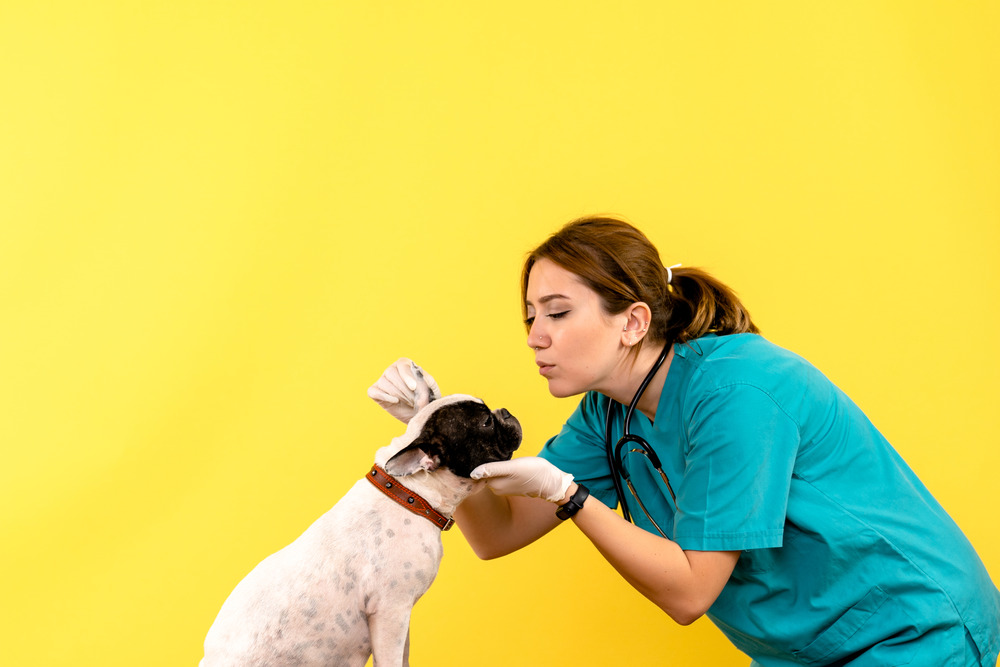As pet owners, ensuring the health and well-being of our furry friends is a top priority. Regular veterinary check-ups are essential for early detection of health issues and maintaining optimal health. But how often should you take your pet to the vet? The answer varies depending on your pet's age, breed, and overall health. In this blog, we will explore the optimal health check schedule for pets at different life stages, backed by statistics and expert recommendations. 🐾

Puppies: The Foundation of Health
Puppies are in a critical growth phase, and regular vet visits are crucial. According to the American Veterinary Medical Association (AVMA), puppies should have their first vet visit as early as 6 to 8 weeks old. During this time, they will receive vaccinations, deworming, and a general health check.
Recommended Schedule for Puppies
| Age (Weeks) | Health Check Activities | Vaccinations |
|---|---|---|
| 6-8 | Initial health check | Distemper, Parvovirus, Adenovirus |
| 10-12 | Follow-up health check | Bordetella, Leptospirosis |
| 14-16 | Final puppy vaccinations | Rabies, Canine Influenza |
By the time your puppy reaches 16 weeks, they should be fully vaccinated. Regular check-ups every 3-4 weeks until they are about 16 weeks old are recommended. This ensures that they are protected against common diseases and are developing properly. 🐶
Adult Dogs: Maintenance and Monitoring
Once your dog reaches adulthood (around 1 year old), the frequency of vet visits can change. The AVMA suggests that healthy adult dogs should have a check-up at least once a year. However, older dogs or those with chronic health issues may require more frequent visits.
Health Check Schedule for Adult Dogs
| Age (Years) | Health Check Activities | Recommended Tests |
|---|---|---|
| 1-3 | Annual health check | Heartworm test, fecal exam |
| 4-6 | Annual health check | Blood work, dental check |
| 7+ | Semi-annual health check | Comprehensive geriatric panel |
As dogs age, they become more susceptible to health issues such as arthritis, diabetes, and heart disease. Regular check-ups can help catch these problems early, allowing for timely intervention. 🐕
Senior Dogs: Specialized Care
Senior dogs (typically 7 years and older) require special attention. The AVMA recommends bi-annual vet visits for senior pets. These visits often include more comprehensive health assessments and screenings for age-related conditions.
Senior Dog Health Check Schedule
| Age (Years) | Health Check Activities | Recommended Tests |
|---|---|---|
| 7-9 | Bi-annual health check | Blood pressure, urinalysis |
| 10+ | Bi-annual health check | Full geriatric assessment |
During these visits, your vet may recommend additional tests such as X-rays or ultrasounds to monitor your pet's internal health. Keeping a close eye on your senior dog's health can significantly improve their quality of life. 🐩
Cats: A Different Approach
Cats also have unique health needs. Kittens should have their first vet visit around 6-8 weeks, similar to puppies. However, adult cats can often go longer between visits.
Health Check Schedule for Cats
| Age (Years) | Health Check Activities | Vaccinations |
|---|---|---|
| 6-8 weeks | Initial health check | Feline Distemper, Rabies |
| 1-3 | Annual health check | Feline Leukemia, Feline Immunodeficiency |
| 4-7 | Annual health check | Blood work, dental check |
| 7+ | Bi-annual health check | Comprehensive geriatric panel |
Cats are notorious for hiding their illnesses, making regular vet visits even more critical. Early detection can lead to better outcomes for conditions like kidney disease and hyperthyroidism. 🐱
Conclusion
Regular veterinary check-ups are essential for pets of all ages. By following the recommended health check schedules, you can help ensure that your furry friends live long, healthy lives. Remember, prevention is always better than cure! For more information on pet health and wellness, check out resources from the American Veterinary Medical Association or the ASPCA.
Taking the time to understand your pet's health needs at every life stage will not only benefit them but also strengthen the bond you share. So, mark your calendars and make those vet appointments! Your pets will thank you with wagging tails and purrs of contentment. 🐾❤️




